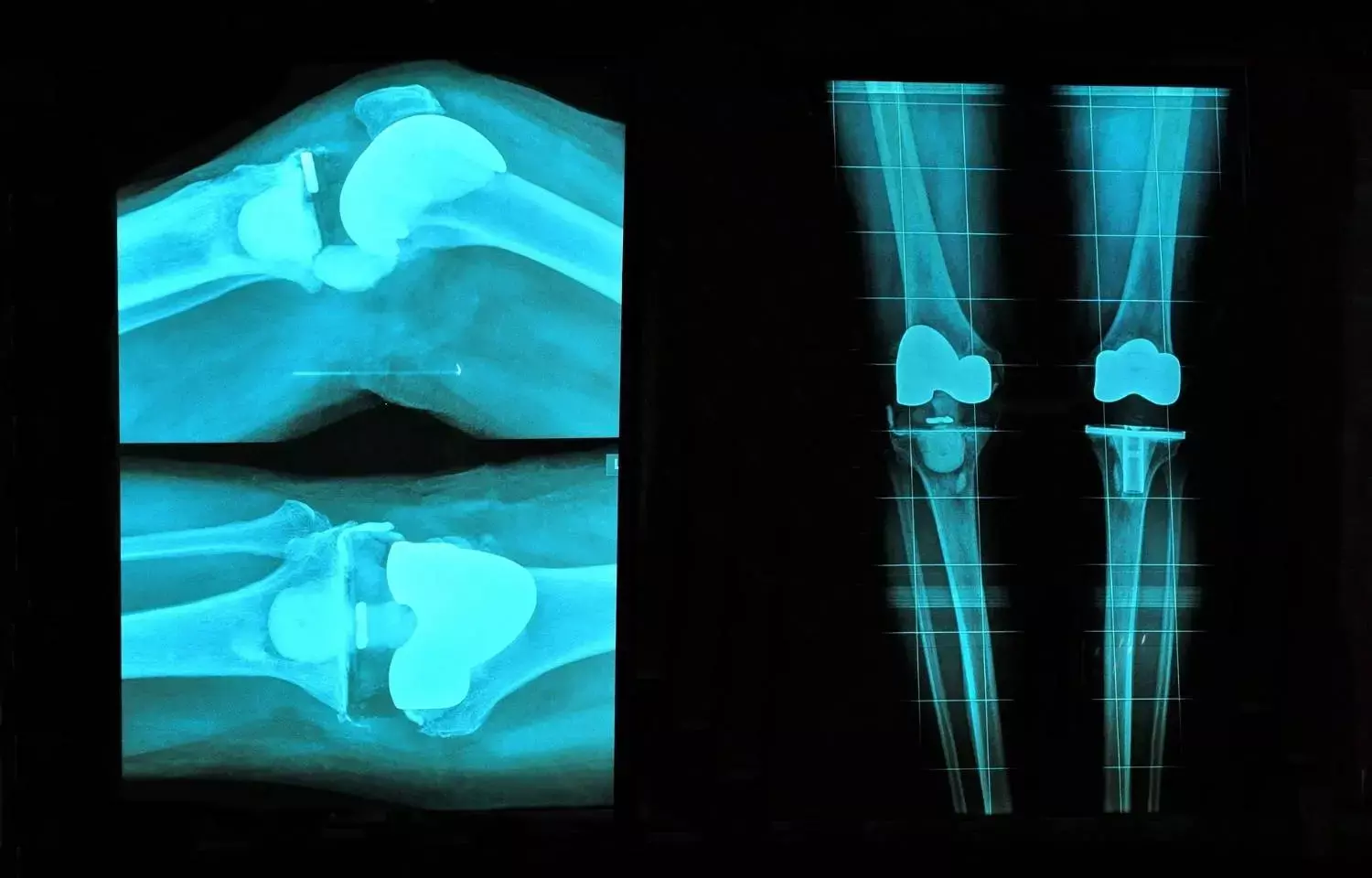- Home
- Medical news & Guidelines
- Anesthesiology
- Cardiology and CTVS
- Critical Care
- Dentistry
- Dermatology
- Diabetes and Endocrinology
- ENT
- Gastroenterology
- Medicine
- Nephrology
- Neurology
- Obstretics-Gynaecology
- Oncology
- Ophthalmology
- Orthopaedics
- Pediatrics-Neonatology
- Psychiatry
- Pulmonology
- Radiology
- Surgery
- Urology
- Laboratory Medicine
- Diet
- Nursing
- Paramedical
- Physiotherapy
- Health news
- Fact Check
- Bone Health Fact Check
- Brain Health Fact Check
- Cancer Related Fact Check
- Child Care Fact Check
- Dental and oral health fact check
- Diabetes and metabolic health fact check
- Diet and Nutrition Fact Check
- Eye and ENT Care Fact Check
- Fitness fact check
- Gut health fact check
- Heart health fact check
- Kidney health fact check
- Medical education fact check
- Men's health fact check
- Respiratory fact check
- Skin and hair care fact check
- Vaccine and Immunization fact check
- Women's health fact check
- AYUSH
- State News
- Andaman and Nicobar Islands
- Andhra Pradesh
- Arunachal Pradesh
- Assam
- Bihar
- Chandigarh
- Chattisgarh
- Dadra and Nagar Haveli
- Daman and Diu
- Delhi
- Goa
- Gujarat
- Haryana
- Himachal Pradesh
- Jammu & Kashmir
- Jharkhand
- Karnataka
- Kerala
- Ladakh
- Lakshadweep
- Madhya Pradesh
- Maharashtra
- Manipur
- Meghalaya
- Mizoram
- Nagaland
- Odisha
- Puducherry
- Punjab
- Rajasthan
- Sikkim
- Tamil Nadu
- Telangana
- Tripura
- Uttar Pradesh
- Uttrakhand
- West Bengal
- Medical Education
- Industry
Cementless total knee arthroplasty tied to excellent biologic fixation reveals multispectral MRI

Cementless knee replacement, an alternative approach to the traditional surgery is gaining interest among orthopedic surgeons. Researchers conducted research to find out if new cementless total knee arthroplasty (TKA) would show similar fixation compared to a cemented system.
Researchers at Hospital for Special Surgery (HSS) have found that a cementless implant demonstrated excellent biologic fixation, and even improved fixation of implant components in some areas in the joint, compared to the standard cemented implant as assessed by multispectral MRI.
The study was published in the October edition of the journal Arthroplasty Today.
HSS hip and knee surgeon Geoffrey Westrich, MD, and colleagues in the HSS Radiology Department used an advanced imaging technique known as "multi-acquisition variable-resonance image combination selective MRI" to assess fixation in patients who had a cementless knee replacement compared to those whose implant was affixed with bone cement.
"The purpose of our study was to quantify and compare the fixation of uncemented versus cemented knee replacement components," said Dr. Westrich, lead investigator. "At an average patient follow-up of 16 months, our study demonstrated robust fixation of the cementless knee replacement components, with results comparable to the cemented total knee replacements. And while there was no clinically significant difference regarding overall fixation in the knee, there were some component areas in which cementless fixation appeared to be superior."
The HSS researchers performed MRIs in 20 patients who had a cementless knee replacement. A matched control group of 20 patients with a cemented knee replacement was also evaluated. The images were reviewed by a fellowship-trained musculoskeletal radiologist specializing in the interpretation of joint replacement MRI, including more than 20 years of experience in assessing bony fixation of knee replacement components.
In a traditional knee replacement, implant components are secured in the joint using bone cement. It's a tried-and-true technique that has worked well for decades. But eventually, over time, the cement may start to loosen from the bone and/or the implant. This loosening is the leading cause of revision surgery, in which a patient needs a second knee replacement.
"With the cementless prosthesis, the components are press fit into place for biologic fixation, which basically means that the bone will grow into the implant," explains Dr. Westrich, who believes a well-designed cementless implant will make loosening over time less likely. This could enable a total knee replacement to last much longer, a particular concern for younger patients.
"Overall, traditional knee replacement offers excellent outcomes and longevity," he says. "However, younger patients generally put more demands on their joint, causing more wear and tear and potential loosening. The cemented knee implant used in a traditional joint replacement usually lasts 15 to 20 years."
Cementless implants have been used successfully in total hip replacement surgery for many years. It has been much more challenging to develop a cementless prosthesis that would work well in the knee because of its particular anatomy, Dr. Westrich explains.
"Early generation cementless implants had numerous design flaws resulting in loosening and poor survivorship compared to cemented knee replacements," he says. "More contemporary cementless knee components such as those used in our study utilize highly porous surfaces to promote biologic fixation of the prosthesis. This should improve outcomes."
Candidates for the cementless procedure are generally patients under age 70 with good bone quality to promote biologic fixation. In addition to younger patients, Dr. Westrich notes that the cementless implant may prove to be a good option for very overweight patients who tend to put more stress on their joint replacement.
"While our study found that early fixation of cementless total knee components are comparable, if not superior, to cemented total knee replacement, further study with a larger number of patients over a lengthier time period is needed to assess long-term durability and fixation."
Reference:
Gina M. Mosich, Hollis G. Potter, Matthew F. Koff, Sara E. SacherMithun Mishu, Geoffrey H. Westrich, Published: August 30, 2022 DOI: https://doi.org/10.1016/j.artd.2022.06.013
Dr Kamal Kant Kohli-MBBS, DTCD- a chest specialist with more than 30 years of practice and a flair for writing clinical articles, Dr Kamal Kant Kohli joined Medical Dialogues as a Chief Editor of Medical News. Besides writing articles, as an editor, he proofreads and verifies all the medical content published on Medical Dialogues including those coming from journals, studies,medical conferences,guidelines etc. Email: drkohli@medicaldialogues.in. Contact no. 011-43720751


